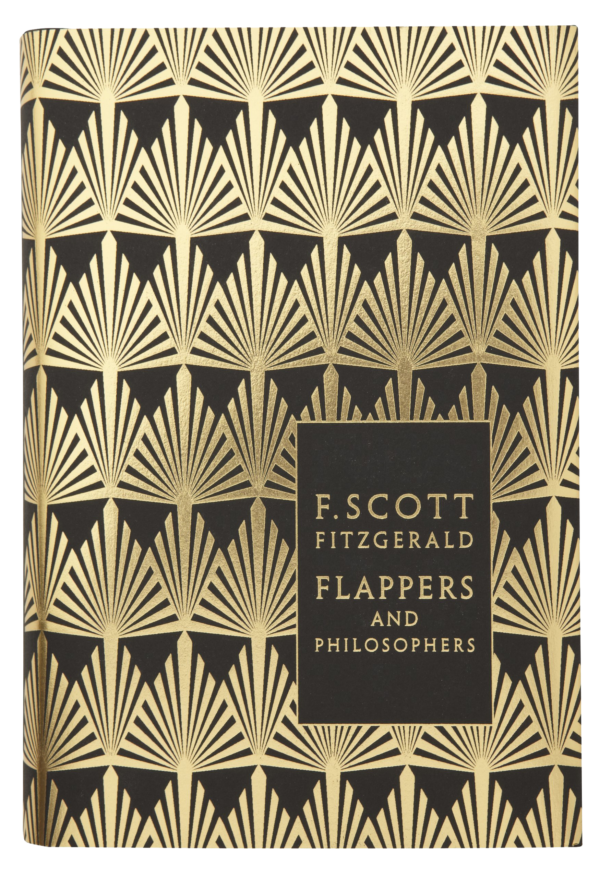
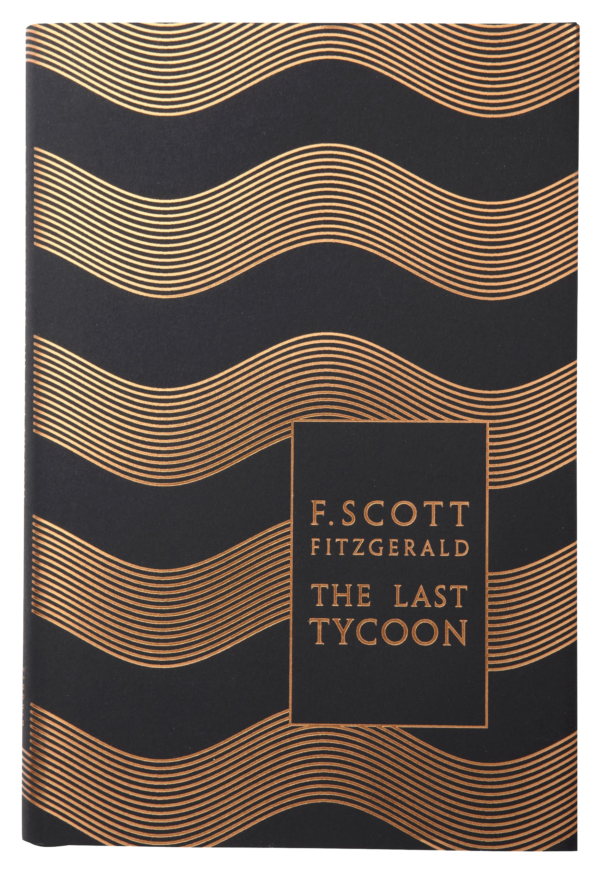
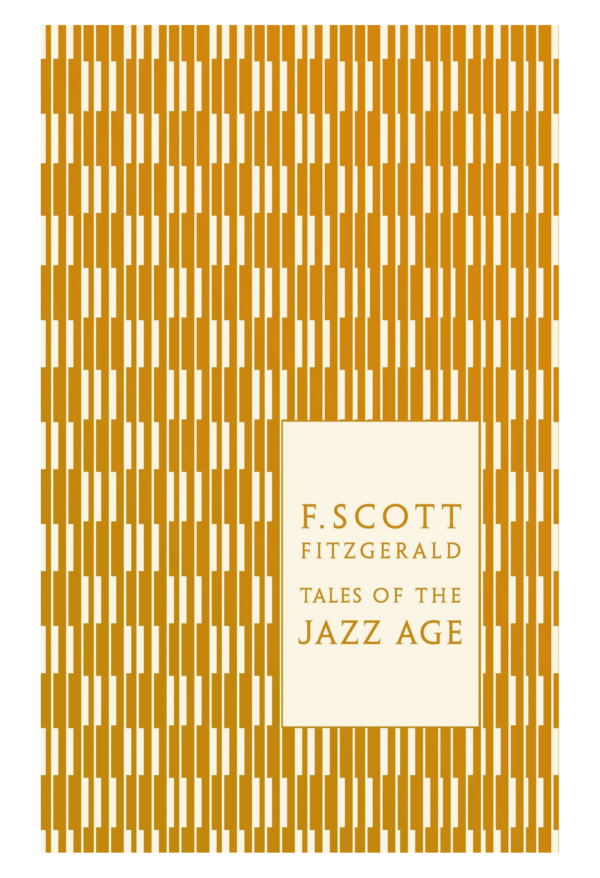
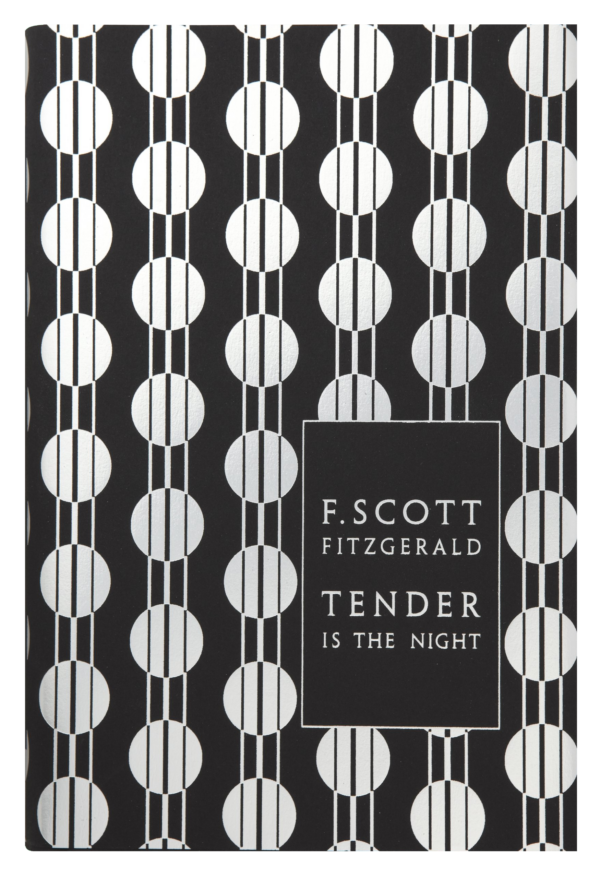
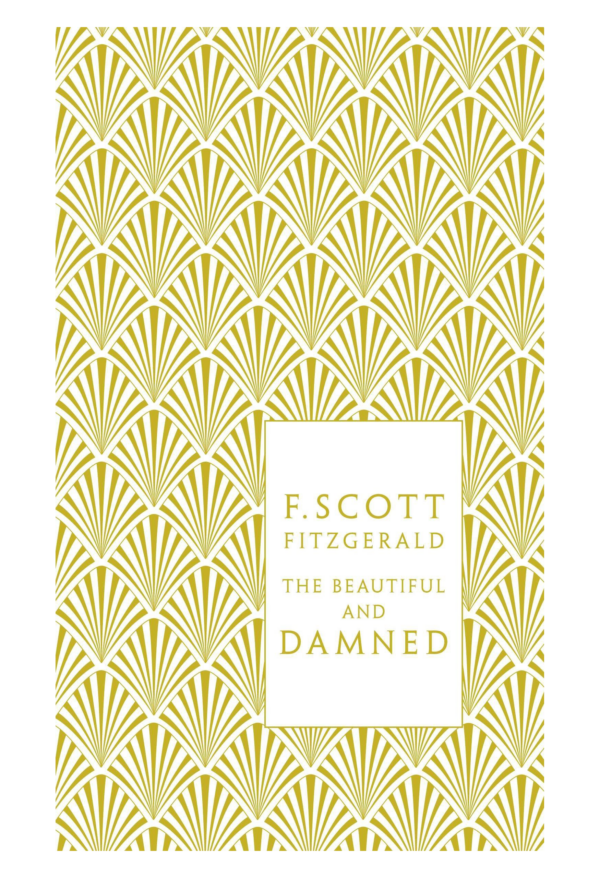
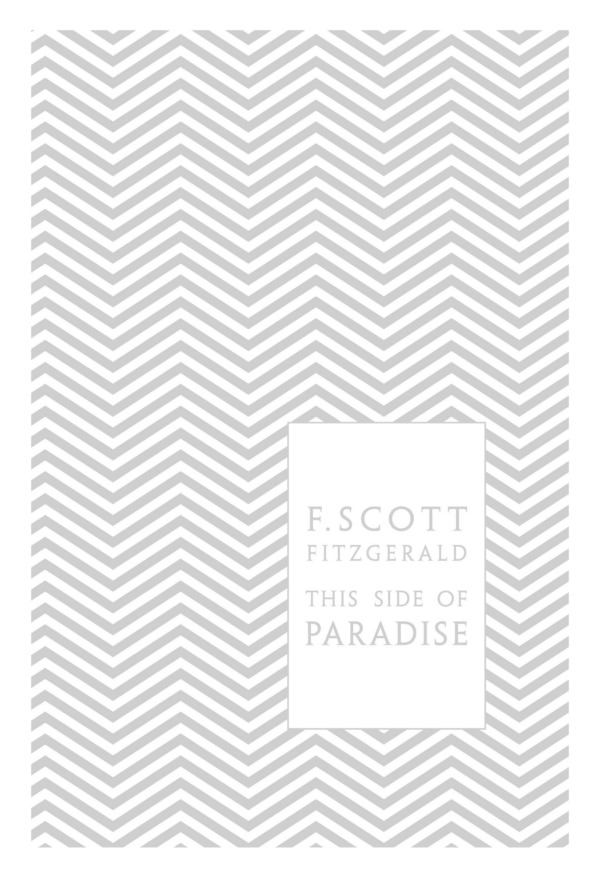
Penguin Classics will publish new editions of six major works by F. Scott Fitzgerald in gorgeous new designs by Coralie Bickford-Smith. Want. More information here.

Official website of the author






Penguin Classics will publish new editions of six major works by F. Scott Fitzgerald in gorgeous new designs by Coralie Bickford-Smith. Want. More information here.

“The novel is whatever novelists are doing at a given time. If we’re not doing the big social novel fifteen years from now, it’ll probably mean our sensibilities have changed in ways that make such work less compelling to us — we won’t stop because the market dried up. The writer leads, he doesn’t follow. The dynamic lives in the writer’s mind, not in the size of the audience. And if the social novel lives, but only barely, surviving in the cracks and ruts of the culture, maybe it will be taken more seriously, as an endangered spectacle. A reduced context but a more intense one.… Writing is a form of personal freedom. It frees us from the mass identity we see in the making all around us. In the end, writers will write not to be outlaw heroes of some underculture but mainly to save themselves, to survive as individuals.”
— Don DeLillo, in a letter to Jonathan Franzen, around 1997

Canadian author Yann Martel received this note from President Obama, out of the blue, about his novel Life of Pi. (Full story here. Larger image here. Via.) Canada’s own prime minister, on the other hand, “sounds and governs like one who cares little for the arts,” Martel writes, speculating that the prime minister may feel he is too busy.
To read a book, one must be still. To watch a concert, a play, a movie, to look at a painting, one must be still. Religion, too, makes use of stillness, notably with prayer and meditation. Just gazing upon a still lake, upon a quiet winter scene — doesn’t that lull us into contemplation? Life, it seems, favours moments of stillness to appear on the edges of our perception and whisper to us, “Here I am. What do you think?” Then we become busy and the stillness vanishes, yet we hardly notice because we fall so easily for the delusion of busyness, whereby what keeps us busy must be important, and the busier we are with it, the more important it must be. And so we work, work, work, rush, rush, rush. On occasion we say to ourselves, panting, “Gosh, life is racing by.” But that’s not it at all, it’s the contrary: life is still. It is we who are racing by.
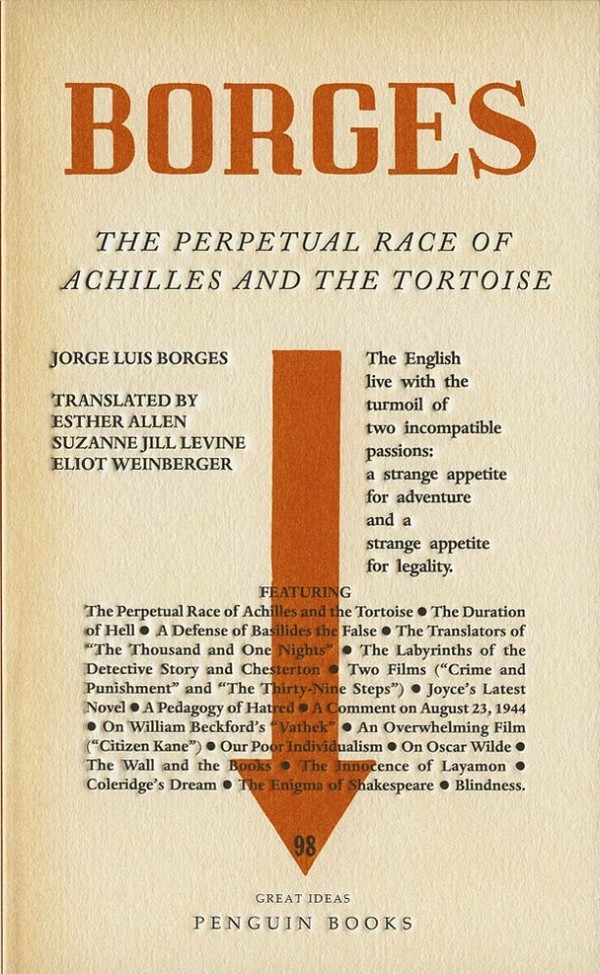
From the latest round of Penguin’s Great Ideas series, a sumptuous cover for a collection of essays by Jorge Luis Borges. It’s enough to make a writer green with envy. Design by We Made This, a graphic design studio in London (with a lovely blog, too). More about the Borges cover is here. Still, my favorite of the Great Ideas covers remains this one.
Novels that take place in a single day, of which Joyce’s Ulysses (1922) and Virginia Woolf’s Mrs. Dalloway (1925) are the Adam and Eve, are apparently called “circadian novels.” I have never heard the term before, but I’m happy to learn it today via novelist James Hynes’s wonderful blog. Hynes links to a very smart article about “circadian novels” by Jim Higgins. The Guardian also has a list of the ten best. Hynes’s own new novel, Next, follows the day-in-the-life formula. I can’t wait to read it — as soon as I get my own damn novel wrapped up and emailed off to my editor.
Another one bites the dust: the wonderful Inkwell Bookstore, an indie in Falmouth, Massachusetts, the Cape Cod town I have been visiting in summer for 35 years or so, has closed. I will miss it.
If you have a favorite independent bookstore, support it!
“When one reads any strongly individual piece of writing, one has the impression of seeing a face somewhere behind the page.”
— George Orwell, “Charles Dickens”